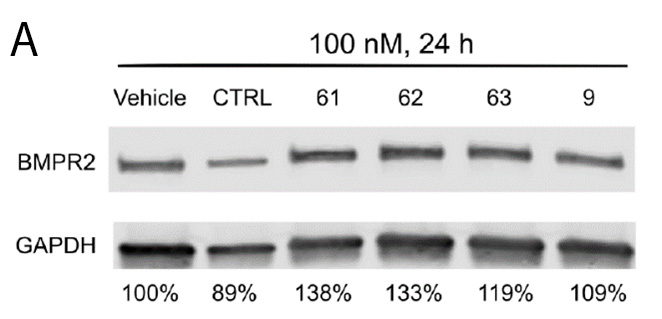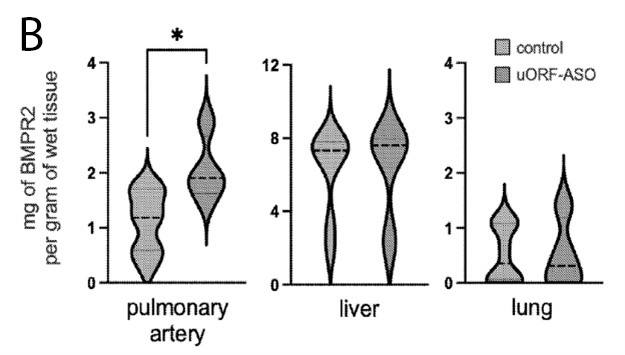Problem:
Pulmonary arterial hypertension (PAH) is a severe lung disease characterized by elevated pulmonary arterial pressure that is estimated to affect 5,000-15,000 people in the US. Without proper treatment, the elevated pressure leads to heart failure and eventually death—median survival without treatment is around 2-3 years. Management and treatment of PAH may help slow down disease progression, but the mortality rate in patients with intermediate- to high-risk (approximately 88% of patient population) remains high.
Solution:
Molecular profiling and clinical studies have identified the loss of bone morphogenetic protein receptor type II (BMPR2) as a major contributor to PAH pathogenesis and progression. Increasing BMPR2 protein has been shown to effectively treat PAH in mouse models.
Technology:
Upstream open reading frames (uORFs) are open reading frames found in the 5’ untranslated region of an mRNA, and they can control protein expression by modulating the rate of translation. Targeting certain regions of uORFs using antisense oligonucleotides (ASOs) has been shown to increase protein expression. The inventors identified uORF sequences of BMPR2 that could be targeted by ASOs to increase BMPR2 protein expression both in vitro and in vivo.
Advantages:
- Potential for stopping disease progression.


(A) Targeting uORF 6, but not uORF 9, increases endogenous BMPR2 protein expression. Western blot for BMPR2 protein expression 24 hours post-transfection with 100nM ASOs in HeLa cells. (B) WT C57BL/6J mice were injected with ASO at 10mg/kg of bodyweight via tail vein injection. 48hrs later, mice were euthanized, and postmortem tissues were collected. Tissue lysates were assayed for murine BMPR2 protein by ELISA. n=8 controls, n=4 uORF-ASO, *p=0.0162 unpaired, two-tailed t-test.
Stage of development:
- Proof of concept in WT mice.
Case ID:
21-9470-TpNCS
Web Published:
8/22/2023
Patent Information:
| App Type |
Country |
Serial No. |
Patent No. |
File Date |
Issued Date |
Expire Date |